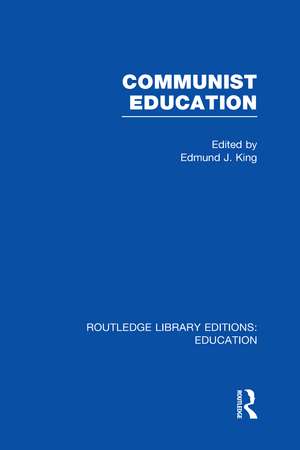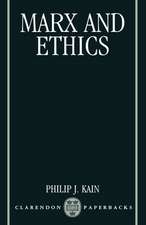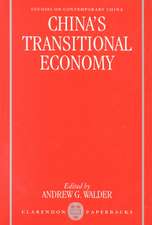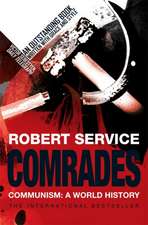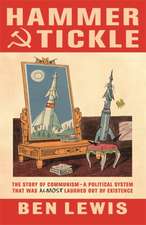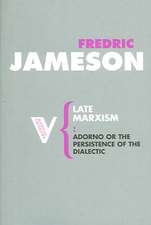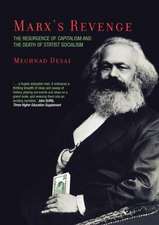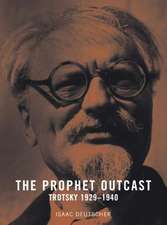Communist Education: Routledge Library Editions: Education
Editat de Edmund Kingen Limba Engleză Hardback – 8 dec 2011
Din seria Routledge Library Editions: Education
-
 Preț: 379.49 lei
Preț: 379.49 lei -
 Preț: 400.94 lei
Preț: 400.94 lei -
 Preț: 377.16 lei
Preț: 377.16 lei -
 Preț: 379.32 lei
Preț: 379.32 lei -
 Preț: 401.34 lei
Preț: 401.34 lei - 8%
 Preț: 375.32 lei
Preț: 375.32 lei - 18%
 Preț: 1298.10 lei
Preț: 1298.10 lei - 34%
 Preț: 819.90 lei
Preț: 819.90 lei - 26%
 Preț: 247.40 lei
Preț: 247.40 lei - 34%
 Preț: 819.90 lei
Preț: 819.90 lei - 34%
 Preț: 819.90 lei
Preț: 819.90 lei - 34%
 Preț: 819.90 lei
Preț: 819.90 lei - 34%
 Preț: 991.00 lei
Preț: 991.00 lei - 34%
 Preț: 822.76 lei
Preț: 822.76 lei - 34%
 Preț: 821.53 lei
Preț: 821.53 lei - 26%
 Preț: 259.98 lei
Preț: 259.98 lei - 34%
 Preț: 764.20 lei
Preț: 764.20 lei - 34%
 Preț: 819.90 lei
Preț: 819.90 lei - 34%
 Preț: 761.85 lei
Preț: 761.85 lei - 34%
 Preț: 986.91 lei
Preț: 986.91 lei - 55%
 Preț: 541.50 lei
Preț: 541.50 lei - 34%
 Preț: 762.01 lei
Preț: 762.01 lei - 27%
 Preț: 261.37 lei
Preț: 261.37 lei - 34%
 Preț: 764.20 lei
Preț: 764.20 lei - 34%
 Preț: 762.97 lei
Preț: 762.97 lei - 34%
 Preț: 819.90 lei
Preț: 819.90 lei - 36%
 Preț: 986.91 lei
Preț: 986.91 lei - 34%
 Preț: 821.53 lei
Preț: 821.53 lei - 34%
 Preț: 819.90 lei
Preț: 819.90 lei - 34%
 Preț: 819.90 lei
Preț: 819.90 lei - 34%
 Preț: 821.13 lei
Preț: 821.13 lei - 34%
 Preț: 2100.27 lei
Preț: 2100.27 lei - 34%
 Preț: 819.90 lei
Preț: 819.90 lei - 34%
 Preț: 819.90 lei
Preț: 819.90 lei - 34%
 Preț: 764.20 lei
Preț: 764.20 lei - 34%
 Preț: 819.90 lei
Preț: 819.90 lei - 34%
 Preț: 986.91 lei
Preț: 986.91 lei - 36%
 Preț: 764.20 lei
Preț: 764.20 lei - 36%
 Preț: 819.90 lei
Preț: 819.90 lei - 34%
 Preț: 4048.76 lei
Preț: 4048.76 lei - 34%
 Preț: 736.38 lei
Preț: 736.38 lei - 34%
 Preț: 819.90 lei
Preț: 819.90 lei - 36%
 Preț: 821.53 lei
Preț: 821.53 lei - 34%
 Preț: 819.90 lei
Preț: 819.90 lei - 34%
 Preț: 819.90 lei
Preț: 819.90 lei - 36%
 Preț: 819.90 lei
Preț: 819.90 lei - 34%
 Preț: 819.90 lei
Preț: 819.90 lei - 36%
 Preț: 819.90 lei
Preț: 819.90 lei
Preț: 338.33 lei
Preț vechi: 433.88 lei
-22% Nou
Puncte Express: 507
Preț estimativ în valută:
64.75€ • 67.35$ • 53.45£
64.75€ • 67.35$ • 53.45£
Carte tipărită la comandă
Livrare economică 14-28 aprilie
Preluare comenzi: 021 569.72.76
Specificații
ISBN-13: 9780415668262
ISBN-10: 0415668263
Pagini: 320
Dimensiuni: 156 x 234 mm
Greutate: 0.45 kg
Ediția:1
Editura: Taylor & Francis
Colecția Routledge
Seria Routledge Library Editions: Education
Locul publicării:Oxford, United Kingdom
ISBN-10: 0415668263
Pagini: 320
Dimensiuni: 156 x 234 mm
Greutate: 0.45 kg
Ediția:1
Editura: Taylor & Francis
Colecția Routledge
Seria Routledge Library Editions: Education
Locul publicării:Oxford, United Kingdom
Public țintă
General, Postgraduate, Professional, and UndergraduateCuprins
Preface. 1. The Concept of Ideology in Communist Education Edmund King. 2. Soviet Educational Psychology Neil O’ Connor. 3. Russian Children at Home and in School Mary Waddington. 4. The Traditional and the Distinctive in Soviet Education William R Fraser 5. The Role, Status, and Training of Teachers in the USSR A Elizabeth Adams. 6. Selection and Differentiation in Soviet Schools John J Figueroa. 7. The Polytechnical Principle Kenneth F Smart. 8. Higher Education C L Wrenn 9. East Germany – Distinctive Features David Johnston 10. Poland – A Statement of Aims and Achievements Bogdan Suchodolski. 11. China Joseph A Lauwerys. 12. Common Ground between Communist and Western Education Joseph Katz. Index.
Descriere
Developments and trends in Communist education are traced in this authoritative survey by specialists. Eight chapters deal with particular aspects: ideology, psychology, the selective process, the roles of teachers and parents, polytechnical education, the universities and professional institutes. Three chapters survey the former East Germany, Poland and China as special case-studies.
